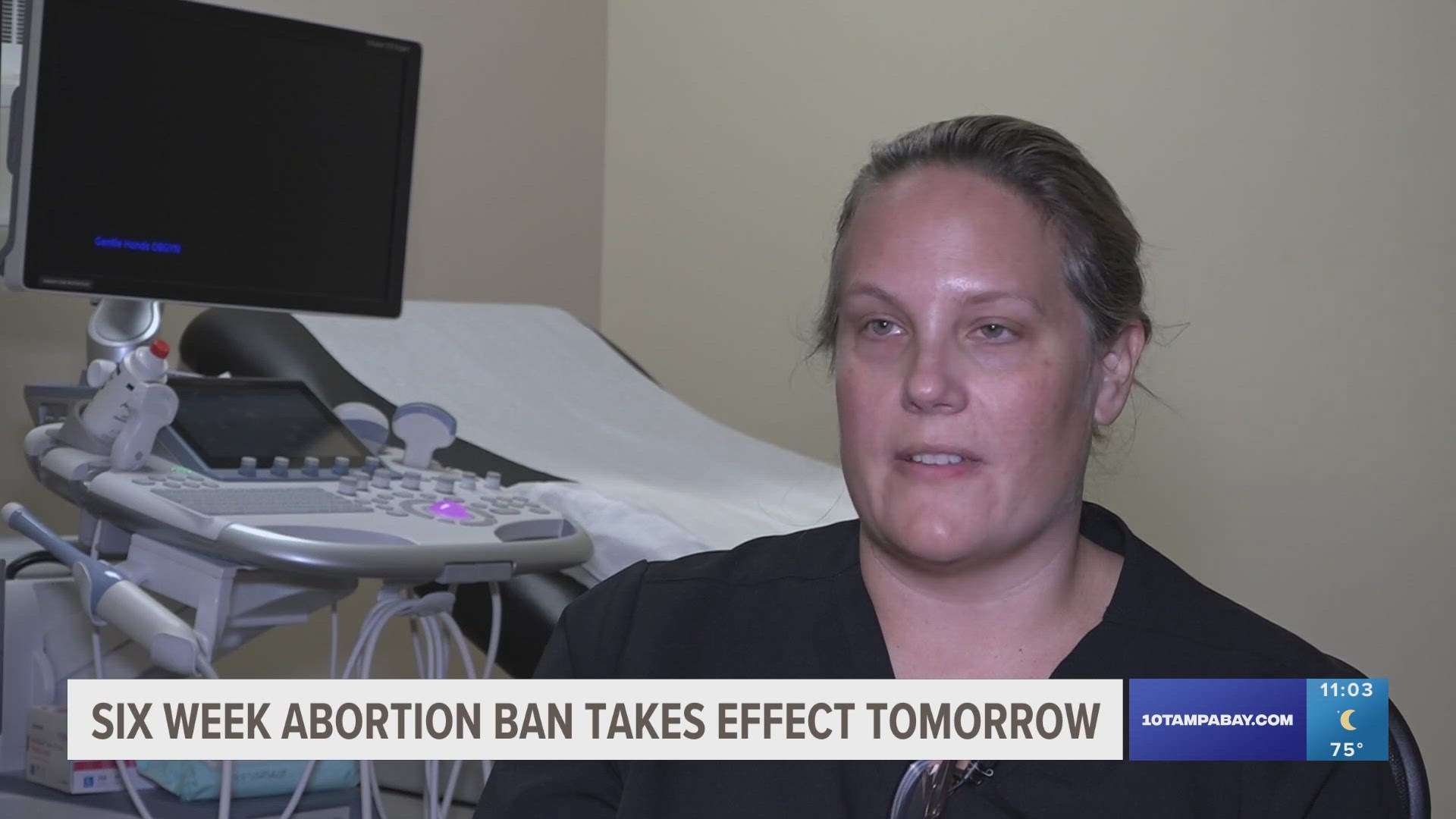WESLEY CHAPEL, Fla. — Florida's new abortion law is now in effect. It bans nearly all abortions after six weeks of pregnancy, spurring fears among some doctors that mothers will start dying.
Kristen Witkowski is an OBGYN in Wesley Chapel and said her patients have been sicker since the 15-week ban went into place.
“I've seen some really sad things happen,” she said. “I've seen a lot of heartbreak and so I am scared about what's going to happen in the future.”
Now with a ban on abortions after six weeks taking effect Wednesday morning, Witkowski thinks health outcomes for pregnant moms will get worse.
“Sicker ICU stays, bad effects on kidneys, blood clots, things that will have lifelong effects long after the baby is delivered,” she said. “I think we're going to see a lot more maternal deaths. I think we're going to see a lot more morbidity from kidney failure, strokes, liver failure, that are lifelong.”
Advocates for abortion access are now pinning hopes on this November’s election and Amendment 4, which if approved, would create a constitutional right to abortion in Florida.
“That is probably our main focus,” said Shannon Keever, communications director for Voices of Florida Fund, a non-profit that advocates for women’s healthcare and abortion rights. “We are going to be educating people on Amendment 4 and encouraging people to pledge to vote for Amendment 4."
Gov. Ron DeSantis and Florida Republicans say the new law is a compromise.
“They want it to go in Florida’s constitution that will eliminate parental consent for minors,” DeSantis said Tuesday at the Tampa Bay History Center. “Why would you take away parental consent?”
Witkowski fears doctors will leave Florida because they aren't able to practice medicine the way they believe they should.
“What I hear a lot of people are talking about [is] either quitting obstetrics or leaving the state,” she said.
This means prenatal and other services for new moms, not just abortions, could be much harder to find.
Plan B and similar morning-after pills, as well as birth control, are still legal in Florida.
The U.S. Supreme Court is expected to rule in June if the most widely used abortion medication, mifepristone, is legal. In Florida, it’s still available through the mail.
There are exceptions to the new abortion law for rape and incest — up to 15 weeks — and in some cases if the mother's health is in danger.

